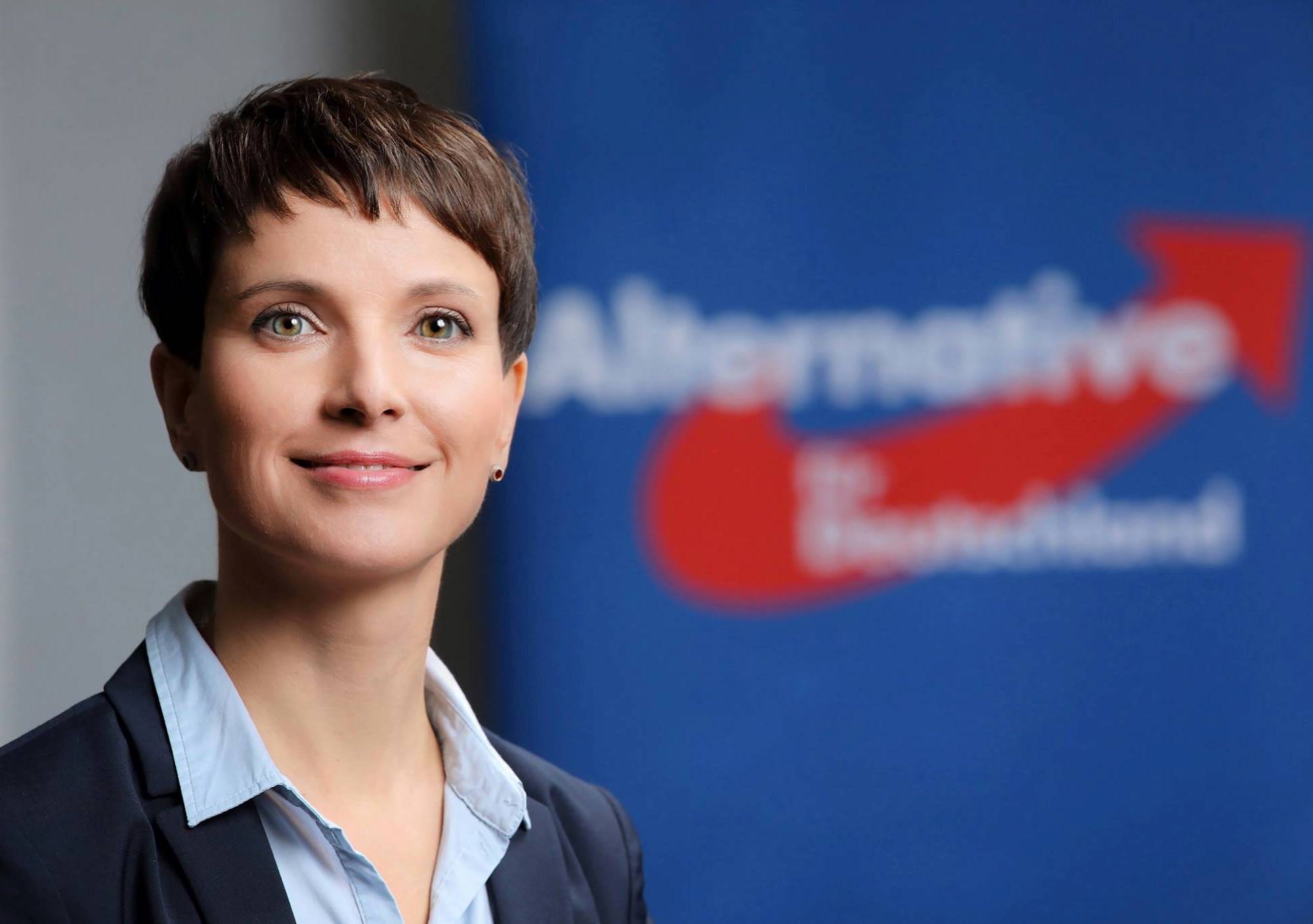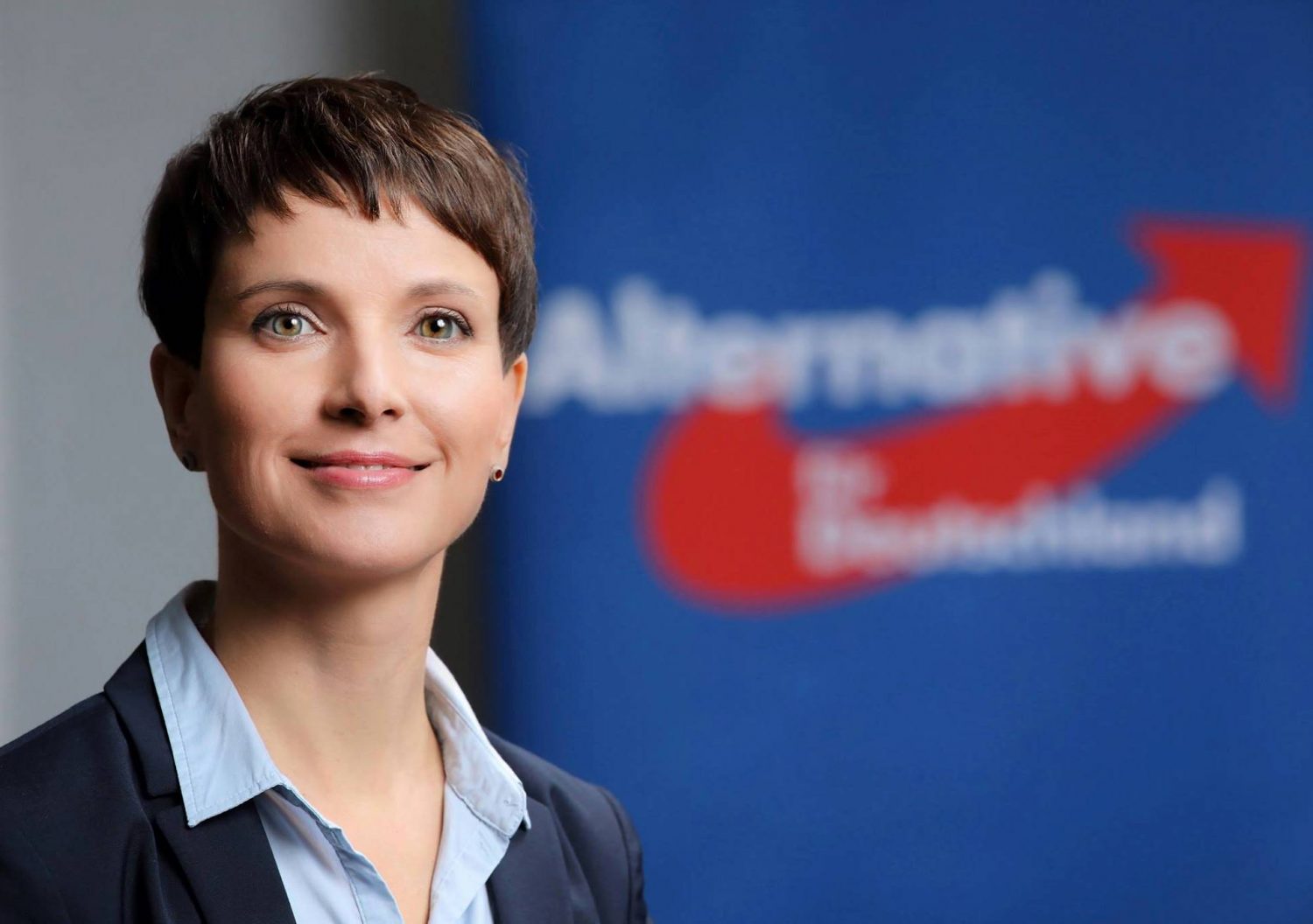
BERLIN, (Reuters) – The Alternative for Germany’s (AfD) co-leader Frauke Petry said on Tuesday she was leaving the far-right party, dealing a major blow to its credibility just two days after it surged to third place in a national election.
Petry, the highest-profile figure in the AfD’s more moderate wing, had shocked other senior members by saying on Monday she would not sit with the AfD in the Bundestag lower house and would instead sit as an independent member of parliament. Her husband, another senior AfD figure, is also leaving the party.
“We tried to change course but you have to realise when you reach a point when that is no longer possible,” Petry told reporters in the eastern city of Dresden.
“I have five children for whom I am responsible and ultimately you have to be able to look yourself in the mirror,” she added.
The anti-immigrant AfD won 12.6 percent of the vote in Germany’s election on Sunday, becoming the third-largest group in parliament and the first far-right group to win seats in the Bundestag since the 1950s.
But Petry has clashed with other senior members, arguing for the party to take a more moderate course.
Petry’s husband, Marcus Pretzell – head of the AfD in the western state of North Rhine-Westphalia (NRW) and also an MP in the European Parliament – is quitting the party and will become an independent MP, a spokesman for the AfD in NRW said.
The spokesman said that Pretzell and another AfD lawmaker in NRW’s regional assembly who is also quitting the party had made the decision for reasons of “personal integrity”.
On Monday, four of the 17 AfD lawmakers in the regional assembly of the eastern state of Mecklenburg-Vorpommern announced they would be leaving the party because it had become more radical.
Europe’s far-right groups have a history of infighting among their various factions. Marine Le Pen, leader of France’s National Front, last week lost her deputy over policy differences.
Alice Weidel, one of the AfD’s top candidates, said she did not expect other lawmakers to quit the party. But she added: “We’ll have to see. The step surprised us all, but there are not yet any trends recognisable in the future parliamentary group.”
Senior AfD member Dirk Driesang, who in July founded a moderate group within the AfD called the “Alternative Centre”, with which Petry was said to sympathise, told news magazine Der Spiegel that the group could not understand Petry’s decision and would not be following in her footsteps.
He said the group would continue to fight for the AfD to take a moderate course and added that “a spin-off from the AfD is a stillbirth”. Driesang pointed to the example of Bernd Lucke, who founded the AfD then left in 2015 due to what he saw as rising xenophobia and then formed a new unsuccessful party.
Petry, a 42-year-old chemist, was the most recognisable face in the AfD during its swift rise over the past two years. But she said on Monday she could not stand with an “anarchistic party” that lacked a credible plan to govern, and would sit in parliament as an independent.
For months, Petry has urged the AfD to soften its stance and prepare to join coalition governments, while others wanted the party to stick to opposition. Mainstream parties refuse to work with the AfD.
She had also distanced herself from some of the AfD’s more radical senior members, saying their comments were putting voters off.
The AfD’s top candidate, Alexander Gauland, caused a scandal during the election campaign by saying Germans should be proud of their World War Two soldiers. He also said the integration minister should be “disposed of” in Turkey, where her parents come from.
As the AfD convened in Berlin on Tuesday for its first parliamentary group meeting, Gauland said discussions in parliament would not echo those of the party’s campaign.
“It’s clear that the talks during the campaign are different to those held in parliament,” Gauland said.

